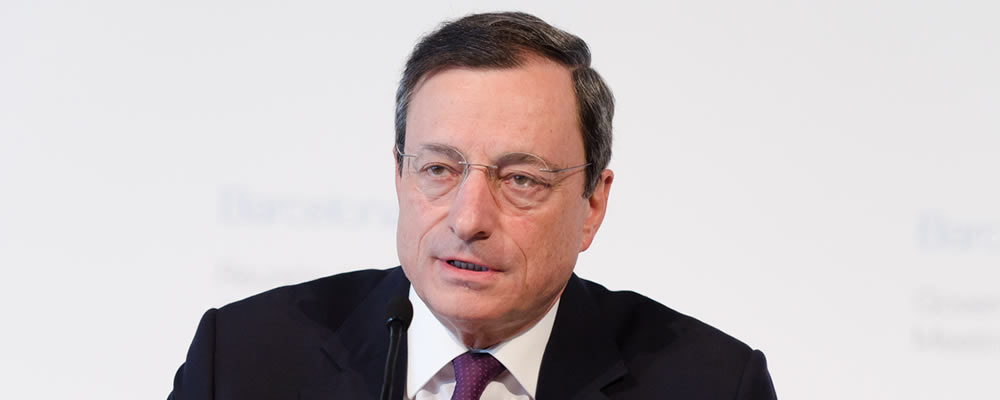It came as no great surprise to markets that the European Central Bank (ECB) opted to leave monetary policy unchanged at its April meeting.
Euro Rates Under Pressure After ECB Holds Steady
Although some had speculated that members of the governing council might take a marginally more hawkish outlook at this juncture the message remained dovish in tilt.
As a result, the Euro failed to find any particular support against its rivals, with investor focus swiftly turning towards the accompanying press conference with President Mario Draghi for further clues.
Initially EUR exchange rates rallied on the back of Draghi’s acknowledgement that downside risks to the Eurozone’s economic recovery have diminished, even though global factors continue to create pressure.
This uptrend proved rather short-lived, though, as the policymaker quickly followed up with a warning that underlying inflationary pressures remain relatively weak and the need for loose monetary policy remains.
Altogether this suggests that the ECB remains in no hurry to alter its policy outlook at present, in spite of more hawkish policymakers such as Bundesbank president Jens Weidmann.
As Timothy Graf, head of macro strategy at State Street Global Markets, noted:
‘Low core inflation is clearly weighing in their minds, suggesting policymaker caution will dominate for at least a few more meetings.
While the second half of the year might get more interesting if the better run of data continues and core inflation starts to trend higher, asset purchase levels and benchmark rates will likely hold for at least the next few meetings.’
With any talk of tapering the quantitative easing program ruled out once again investors saw little cause for encouragement, prompting the Euro to extend its losses further throughout the afternoon.
Could Stronger Eurozone Inflation Boost Odds of ECB Tightening?
Even though April’s German consumer price index bettered expectations, climbing from 1.6% to 2.0% on the year, this was not enough to shore up the single currency.
As inflationary pressure across the wider Eurozone remains relatively weak this stronger showing is unlikely to impact the outlook of the ECB going forward.
However, a similar improvement in the corresponding Eurozone data could give EUR exchange rates some measure of support ahead of the weekend.
So long as political risks in the currency union are seen to diminish and domestic data continues to perform well markets could start to bet on the ECB adopting a more positive attitude in the coming months.
If centrist Emmanuel Macron succeeds in the final run-off of the French presidential election the odds of nearer term ECB action could increase, in spite of Draghi’s assurance that the central bank discusses policy rather than politics.
Current EUR Interbank Exchange Rates
At the time of writing, the Euro Pound exchange rate was slumped at 0.84. Meanwhile, the Euro US Dollar exchange rate was on a downtrend in the region of 1.08.



